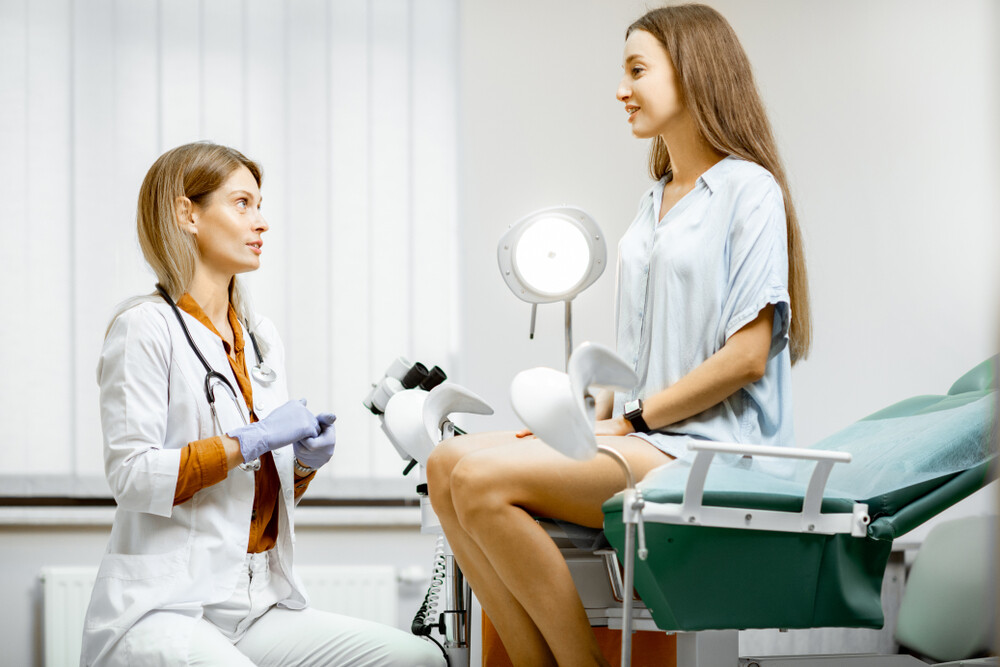The first visit to the gynecologist after the pregnancy test at home – quite exciting! Here you can find out what to expect there.
Why a gynecologist?
Sure, the baby will grow without medical supervision. Nevertheless, most women make an appointment with their gynaecologist after a positive pregnancy test. “We have been observing for a long time that women are coming earlier”, reports Dr. Peter Hausser, Bavarian state chairman of the professional association of gynecologists (BVF) from his Bayreuth practice. No wonder, after all one would like to have certainty as early as possible in the vast majority of cases.
When is the right time for the first appointment?
If you want to know early on whether it worked this time, you do not have to wait for a positive result of a pregnancy test. This is because a pregnancy test only provides reliable results about 14 days after ovulation. The gynaecologist, on the other hand, can use a blood test to find out earlier whether you are pregnant. The pregnancy hormone HCG can be detected in the blood as early as six to nine days after fertilisation.
If the doctor’s practice is equipped with the appropriate technology, the gynecologist can not only clearly determine the pregnancy with the so-called early ultrasound from the sixth week of pregnancy onwards, but also check whether the embryo has properly implanted in the uterus. However: Up to now, neither the costs of the blood test nor those of the first ultrasound are covered by health insurance companies.
What happens at the first gynecological examination?
At the first preventive medical checkup, the doctor first confirms the pregnancy. Further examinations are also scheduled: Weighing, blood pressure, urinalysis, Hb level. Blood is also taken to determine your blood group and rhesus factor, and further tests – for HIV and rubella, the antibody addiction test and the lues-search reaction – are carried out.
However, the main focus of this appointment is the consultation. “We inform the pregnant woman about possible risks, give tips on the right diet and the connection between caries and nutrition during pregnancy,” explains Dr. Hausser. And the woman naturally has the opportunity to ask the questions that are burning under her nails.
How should I prepare for the gynecologist appointment?
Am I pregnant? This question is usually followed by countless others – including medical ones. What about my hay fever remedy? Do I have to give up my cat? Do I have to cancel my Mallorca holiday now? The best thing is to collect all these things that move you before your appointment with your doctor – so that you can clarify them during your first check-up and leave the practice with the good feeling that you have been fully informed.
Your doctor also has questions: she will be particularly interested in your medical history: Metabolic, childhood and hereditary diseases, possible allergies, possible miscarriages and abortions – these are topics she will address. And of course your vaccination status. So it’s best to bring the relevant documents such as your vaccination card or allergy certificate with you to the appointment.
Do I get a maternal health passport now?
First the gynecologist will send your blood sample to the lab. As soon as the results are available, he will enter them in the maternity record and hand it over. This will take a few days, though. Once you are the proud owner of the passport, you should always carry it with you for your and your baby’s safety.
Any questions?
You still have questions, but there wasn’t enough time for that in view of the crowded waiting room? It is best to look for a midwife at the beginning of the pregnancy. She is the perfect complement to the gynecologist: you have two competent contact persons for the most diverse topics that accompany you through your pregnancy. And: many midwives even make house visits.

